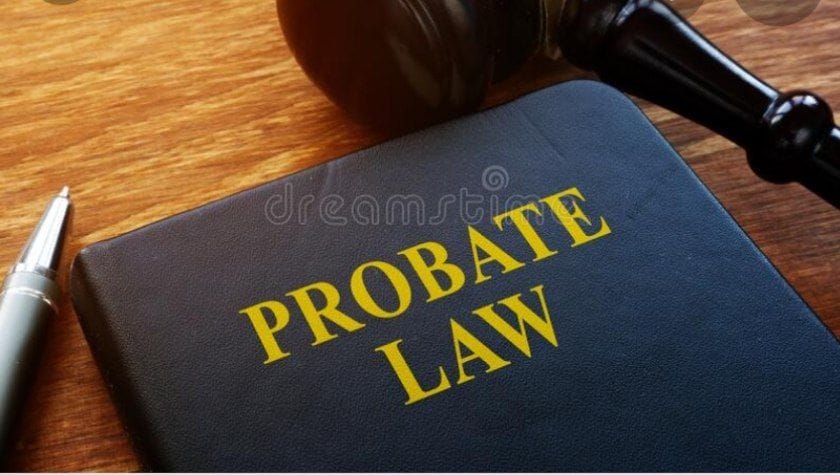
“Wills speak at the time of death”. This is a very old saying, but still so applicable today! Your will is your voice after you die. Your last will and testament is a legal document in which you can express how you want your property to be distributed after your death, who you want to be in charge of said distribution and who will take care of your kids. In a will, you can also provide for your pets, your great grandmother’s silverware, your coin collection, your antiques and anything else you want to end in a certain person’s possession.
If you die without a will, you are said to have died intestate. In that case the law of the state in which your property is located will determine the way your property will be distributed after your death, regardless of what your wishes were. If you want to have a word on who is going to get what from the property you leave behind, you must have a will. A simple will is the only way you can control what is going to happen with all your affairs after you die.
If you die intestate and you do not have children, your property will be transferred to your parents. If your parents have predeceased you, then the property will be passed on to your siblings, even if you haven‘t heard from them in years. Your spouse or domestic partner will only get the small portion of your property that the law reserves for him or her. In the absence of a will, spouses and/or domestic partners, after a life of companionship, can be left with very little. They can even lose their home, if you do die intestate.
Dying without a will, closes the doors to all your friends from inheriting from you, regardless of how dear they may be to you. You will not have the choice of leaving money to your favorite charity, cause or church. The state will decide who will take care of your children. In brief, what you think, what you want, or what your opinions are regarding what happens with all your things after you die will be totally discounted, when you die without a will. You are left out of the decision-making process altogether.
Another advantage of having a will is that in it you can designate an “executor”, a personal representative that will take charge of winding up all your financial affairs. This person, obviously someone you trust, will take your will to probate court. The probate court will determine the validity of your last will. It will determine if your will complies with all the law requirements in your state. If the court finds that your will is valid, your will is probated. That is, everything you stated in your will take place accordingly to your instructions. The court will appoint the person you chose to be your personal representative. The rest of the process will be handled by the personal representative under the court’s supervision.
Your personal representative will have your estate appraised, pay taxes accordingly, review and pay any valid debts you might have left, collect any amounts owed to you, pay your funeral expenses and distribute the remaining assets to the persons named in your will. With a will, you can truly rest in peace.
There is only one thing sure in life and that is death. Surely, nobody likes to deal with health or economic issues, much less do we want to be engaged in a property family feud. There are several steps that you can take to protect your spouse or significant other, your children, pet, and your friends, should you become unable to communicate. Make sure you spouse or life companion gets what he or she deserves in a case like this. Plan ahead. Consult with an attorney or an estate planner, do your estate planning. If you don’t have children and a written legal will, your property will go to your surviving parents or siblings. Not to your spouse or partner. Neither to any of the important people in your life that you would have liked. That is why it is so important to have a written valid will. Should you have an accident and become unable to communicate your healthcare preferences, you are leaving to your relatives – who might not even know what your beliefs are – to decide issues regarding the management of your body, and ultimately your life in a critical situation. Do you want your life to be extended if you are suffering from a fatal condition and have come to the stage where doctors have used all the treatment options science has to offer? Do you want to be buried or cremated? These are tough questions. You should not let your relatives answer them for you. You are able to voice your opinion even if you can’t speak. How? Prepare your Health Care Directive. In this document you will appoint a person you trust as your authorized representative in a situation like the one described above.
Private citizens create trusts for many reasons. One particular reason why many people create a trust is to prevent certain assets or capital from going to probate court when you die. A way to do this is by creating a trust in favor of a beneficiary who at the time of the formation of the trust is incapable of managing the property that is intended for him or her, either because he or she is a minor, or because he or she has been legally declared incapacitated. For example, a parent can create a trust in favor of his three minor children, providing that the funds transferred to the trustee will be used to finance the children’s future college studies in equal parts. Another example would be the case in which a parent creates a trust in favor of his or her autistic child to provide for his or her future special needs, called special needs trust, for the child’s personal and medical care.
In simple words, a trust is a legal arrangement made between three persons, generally speaking. The owner of the trust is called the trustor. The person whose name the trustor is going to transfer the property is the trustee. The trustee has the obligation of managing and protecting the property in benefit of a third person, the beneficiary. Instead of persons, there could be an institution. There are two broad categories or types of trusts: living revocable trust and testamentary trust. Living trusts are those created to operate during the trustor’s lifetime. The testamentary trust starts working when the trustor dies.
Living trusts, also known as “inter vivos” trusts, are exempt from the probate process. In other words, the money or the property you put in it does not have to go to court after your death. This will prevent the costs associated with probate court and reduce the taxes associated with the property you are leaving behind.
Among living trusts there are two classifications: private or charitable, depending on who they are meant to benefit. Private trusts are those created for the benefit of a particular citizen or group of citizens. Such are the trusts created for the benefit of one or several family members, like to fund college studies or to support the special needs of a handicapped relative or friend. Charitable trusts are created to financially benefit a cause, a class or group of persons which the trustor wants to provide support. We hear of this type of trusts all the time, especially in reference to celebrities. A trust in benefit of the American Red Cross, for example, would be a charitable type of trust.
A trust can also be either revocable or irrevocable, depending on its purpose. In a revocable trust, the grantor can change any of the conditions of the trust, even after the trust has commenced. On the other hand, in an irrevocable trust, the trustor waives his or her right to make any changes once the trust is created.
There are many other types of trusts that can be used to meet your specific needs or purposes. Regardless of what kind of need you have, creating a trust will always save you money.
“I never promised you a rose garden”, are the lyrics of a song. But you can surely make it less hard for your spouse, children, and other relatives if you leave them detailed instructions on how you want your estate to be handled after your death.
A will is the legal document that will provide for the disposition and handling of all matters related to your estate when you die. It is in your last will that you will name your heirs and beneficiaries. You will designate who is going to get what from your properties. As importantly, in your will you will also determine how are your financial obligations and liabilities going to be handled, even your funeral. You do not want to give your loved ones the headache of having to figure all these things out by themselves, especially when they are still grieving your loss.


Who will speak for you when you can’t speak for yourself?
Who will speak for you when you can’t speak for yourself? That’s the question I ask all my clients. So, I’m asking you right up front. Because the answer to that question is perhaps the most important answer you will ever give in this life.
You see, all of us, regardless of our wealth, status, or position in society, are concerned about what will happen to the people we love…and the assets we’ve worked so hard for…when we are no longer there to speak for ourselves.

Address: Trillium Towers
6320 Canoga Avenue, Suite 1610
Woodland Hills, California 9136
Phone: +1 818-585-3872
Phone: +1 818-436-2329
Email: evaneabbassi@aol.com
Hours: Monday – Friday 09:00 AM to 05:00 PM
Saturdays and Sundays: by appointment only
©2023 ABBASSILAWFIRM.COM. All rights reserved.
Powered by Remote Recode